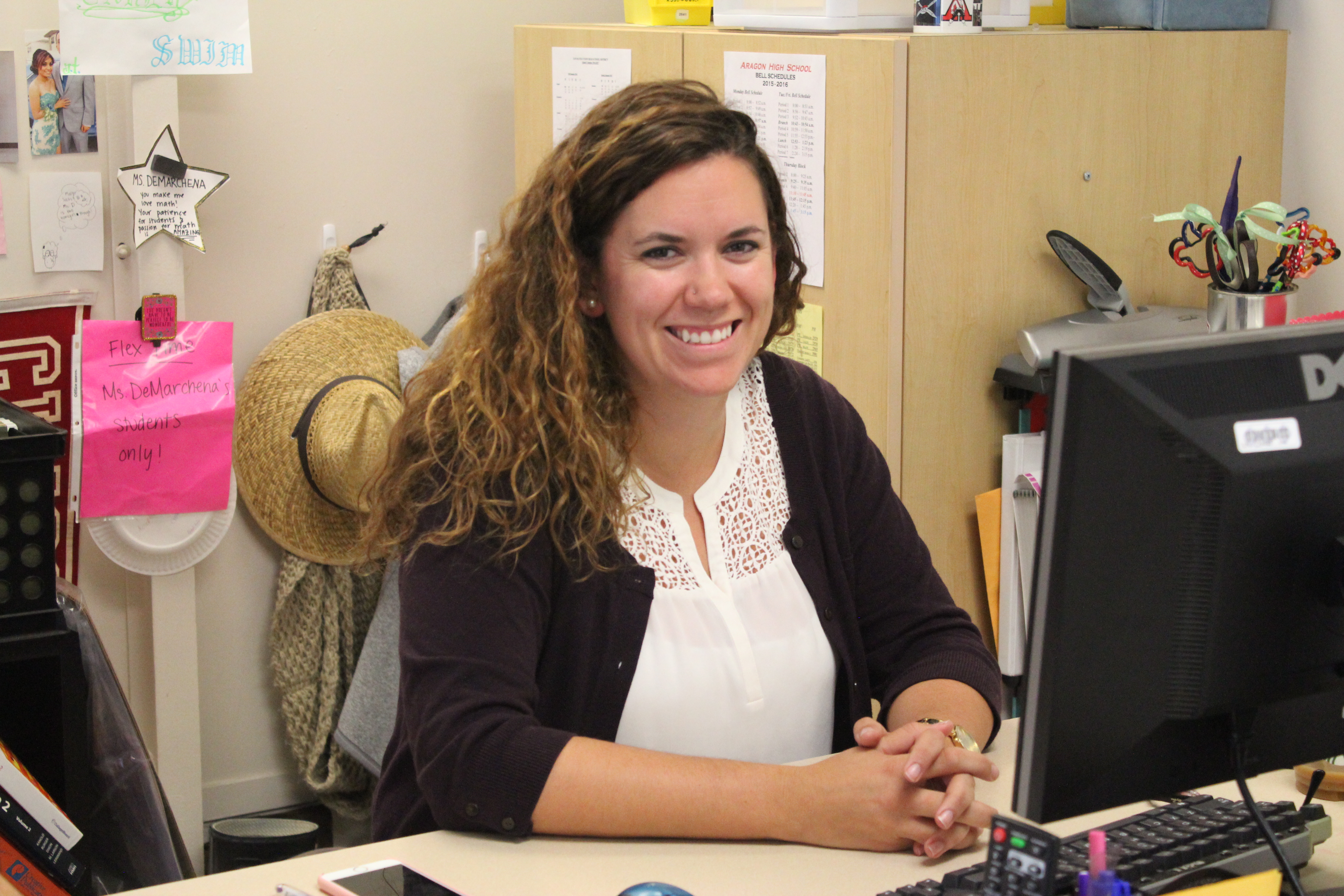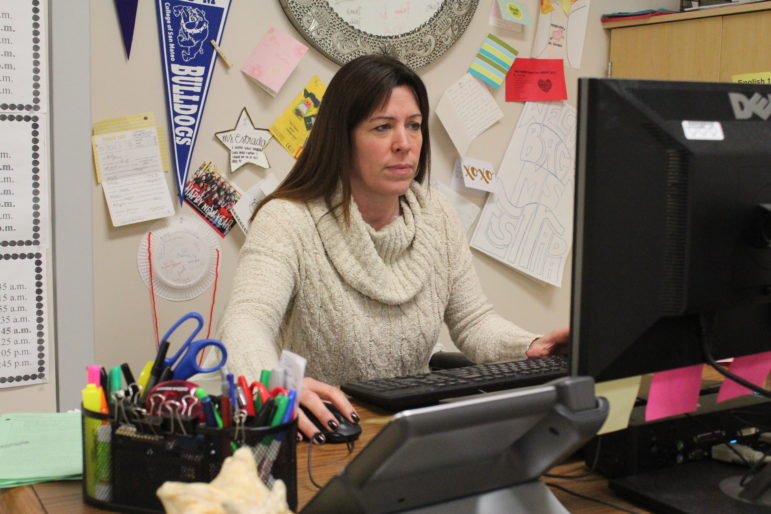
 “It’s a lot of work. During the school year, and even vacations, I find myself working a majority of the time. If you’re a perfectionist and very dedicated, it can be a job that can be time consuming or even life consuming,” says Spanish teacher Ben Ho. Getting rich and becoming famous can be ruled out as incentives as to why teachers would want to teach. So the question remains, why do teachers teach?
“It’s a lot of work. During the school year, and even vacations, I find myself working a majority of the time. If you’re a perfectionist and very dedicated, it can be a job that can be time consuming or even life consuming,” says Spanish teacher Ben Ho. Getting rich and becoming famous can be ruled out as incentives as to why teachers would want to teach. So the question remains, why do teachers teach?
Freshman Savannah Haley grew up watching her mother, the current principal of Beresford Elementary School, teaching from a very young age. “I always watched her passion for teaching and I just thought about the fact that I would want to be just like that.” English teacher Holly Estrada had a similar experience with her high school science teacher, Mrs. Geller. She says, “I just saw how much my science teacher loved what she did and I loved her class so much that it made me want to be like her.” The passions of others impacted both Haley and Estrada to choose their career paths.
No matter where their passions to teach originated, teachers go to school every day with various motivations. Carly DeMarchena, math teacher and water polo and swimming coach simply states her reasoning for coming to school every morning and says, “Mostly, I like interacting with kids. Whether it’s about math or it’s swimming or water polo. I just like to talk to kids and hear their point of view on things and they usually make me laugh about things.” The simple interaction and excitement is enough for a teacher to enjoy their job. Estrada also reflects on the easy energy of working with many wonderful people and the satisfaction she feels at the end of the day: “You never leave here feeling worse than when you came here. You get a lot of energy, you have no time to worry about anything, and just being with this many wonderful people, the kids and the adults, it’s just easy to want to come here.
DeMarchena, Estrada and Ho align in terms of their views on the rewarding moments of being a teacher. “It’s really not, for me anyway, a job that is full of these earth-shattering, life-changing, big reward moments. It’s a lot of the little things,” Estrada says. The three teachers take pride in the smaller moments where students have mini-victories. “[These moments are] any time a student is surprised when they understand something. Someone that has maybe struggled for a long time and says that they hate math, I get a lot out of when they surprise themselves,” says DeMarchena. Those times are overlooked by students, but can be extremely special to teachers.
“You never leave here feeling worse than when you came here.”
Although there are many memorable highlights in a teaching career, there are also a multitude of challenges. With public speaking being one of the top fears in America according to the Washington Post, it comes as no surprise that standing up in front of 30 students every day could be daunting. Despite DeMarchena’s nerves about teaching in front of a sizable amount of students when she started teaching, she overcame them rather quickly. “[Students] know what you’re talking about and they’re pretty forgiving, so if you make a mistake, they understand,” explains DeMarchena.
Estrada also comments on her fears about the classroom environment and the prospect of everything being purely chaotic as well as not being able to have control of the students. “I think the most [terrifying] thing is the chance that your room will be chaos. Will you not have an activity to do or will you not be able to move people forward in a direction,” she says, “That’s what’s probably scariest: will things be a mess around you?”
There are also deeper concerns when teaching. Estrada says, “Trying to remember that each person has their pain that we, when we’re teaching, don’t know about and to always try to remember to not assume bad intent from someone,” she says, “and when you make a mistake and you find out the person’s motivations, that can be really hard to accept that you could’ve done something that really hurt someone.” When speaking to over a couple dozen students with different backgrounds and personalities, Estrada cannot always tell when something she says or has said in the past affects a student in a negative way.
Even through all of the practical and emotional struggles, teachers continue to teach. As Haley says, “I think it’s completely worth [going through the many obstacles] to have generations of smart people doing all these great things because of teachers.”




